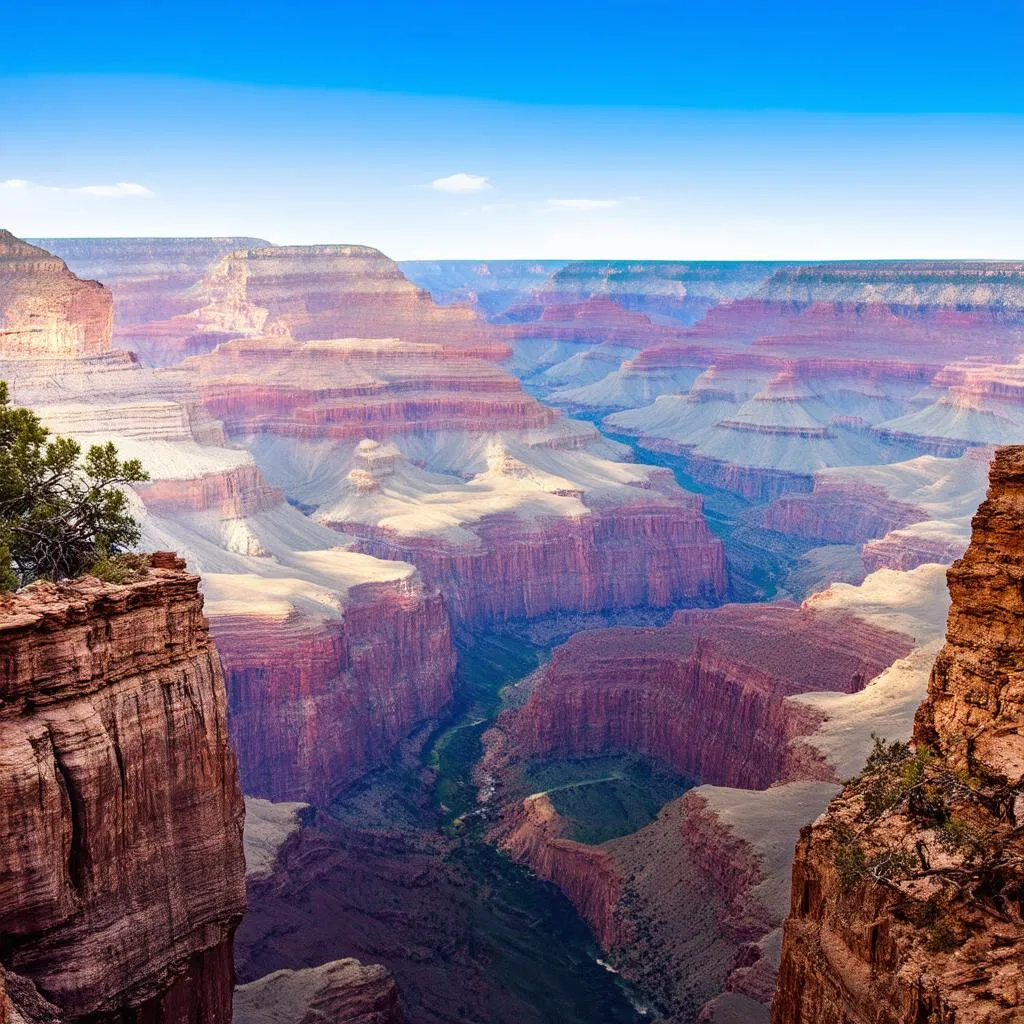Have you ever stood at the edge of the Grand Canyon and yelled, just to hear your echo bounce back moments later? Or perhaps you’ve been captivated by the distant melody of a street musician in the bustling alleyways of Marrakech? These experiences, while different, both make us wonder: how far does sound actually travel?
The answer, like many things in science, is: it depends.
Factors Influencing Sound Travel
Sound isn’t an object, but a wave of energy traveling through a medium. Several factors influence how far these waves can propagate:
1. Medium:
Sound travels fastest through solids, followed by liquids, and slowest through air. This is because the molecules in denser materials are packed closer together, allowing vibrations (sound waves) to pass through more efficiently. For instance, did you know that sound travels about 4 times faster in water than in air? That’s why whales can communicate over vast distances in the ocean, something impossible for land animals over the same expanse. To delve deeper into this, explore how far sound travels in water here: (https://travelcar.edu.vn/how-far-does-sound-travel-in-water/)
2. Temperature:
Generally, sound travels faster at higher temperatures. Imagine the lively sounds of a street food market in Bangkok. The heat, combined with the cacophony of sizzling woks and chatter, seems to amplify the entire experience. This is partly because sound waves travel slightly faster in warmer air.
3. Humidity:
Ever notice how sounds seem crisper and travel further on a foggy morning? This is because water vapor in the air can slightly increase the speed of sound.
4. Frequency and Wavelength:
Lower frequency sounds, like the deep rumble of thunder, have longer wavelengths and can travel farther than higher-pitched sounds. This is why you might feel the bass of a concert from blocks away, but the vocals become clear only as you get closer.
 Sound waves traveling through the Grand Canyon
Sound waves traveling through the Grand Canyon
Sound Travel: Examples and Insights
While we can discuss the science, sometimes concrete examples paint the clearest picture.
Whispering Galleries: Places like St. Paul’s Cathedral in London are famous for their whispering galleries. These architectural marvels utilize the reflection of sound waves to allow whispers to be heard clearly at a distance, even when the speaker is far away.
Animal Communication: Consider the haunting howl of a wolf. In ideal conditions, these calls can travel up to 10 miles across open terrain. This remarkable feat showcases the powerful role of sound in the animal kingdom.
Planning Your Sonic Journey with Travelcar.edu.vn
Understanding how sound travels can add a new dimension to your travel experiences. Imagine yourself at these locations, contemplating the science of sound:
- Standing amidst the ancient stones of Stonehenge: Feel the echoes of history as you consider how sound might have played a role in ancient rituals at this mysterious site.
- Sailing on a tranquil lake in Switzerland: Listen closely to the gentle lapping of water against your boat and the distant calls of birds, appreciating the clarity of sound in such peaceful surroundings.
For more travel inspiration and insights into the fascinating world around us, explore the wealth of information available at travelcar.edu.vn.
 A traveler immersed in the sounds of nature
A traveler immersed in the sounds of nature
Frequently Asked Questions
1. How far does the sound of a gunshot travel?
The distance a gunshot sound travels depends on various factors like the type of gun, weather conditions, and surrounding terrain. On average, it can be heard clearly for several miles and may even be faintly detectable up to 10 miles away.
2. How Far Does Sound Travel per second?
The speed of sound in air is approximately 343 meters per second, or 767 miles per hour. This speed can vary slightly depending on factors like temperature and humidity. To learn more about the speed of sound, visit (https://travelcar.edu.vn/how-far-does-sound-travel-per-second/).
3. Does sound travel forever?
Technically, no. Sound energy dissipates as it travels, eventually becoming too faint to hear. This dissipation happens faster in air compared to water or solids.
Embracing the Soundscape of Your Journey
As you plan your next adventure, consider the sounds that will create the soundtrack of your trip. From the bustling markets of Marrakech to the serene Swiss Alps, each location offers a unique sonic experience. Let the principles of sound amplify your travel memories and deepen your appreciation for the world around us.